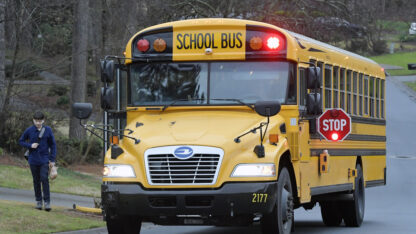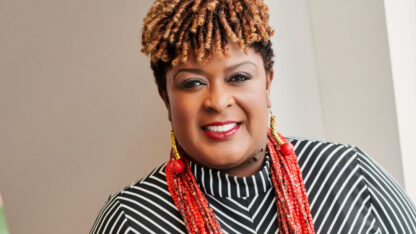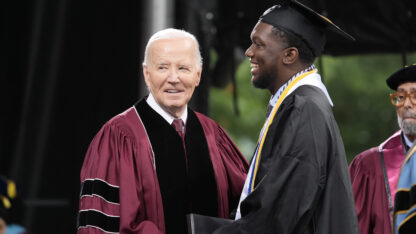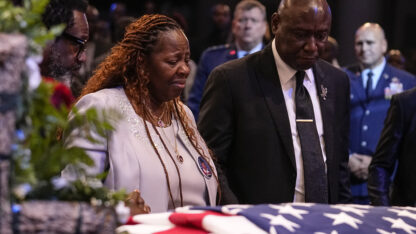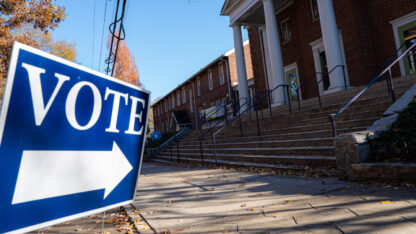Atlanta mom says son’s 'unjust expulsion' an example of disproportionate discipline in schools
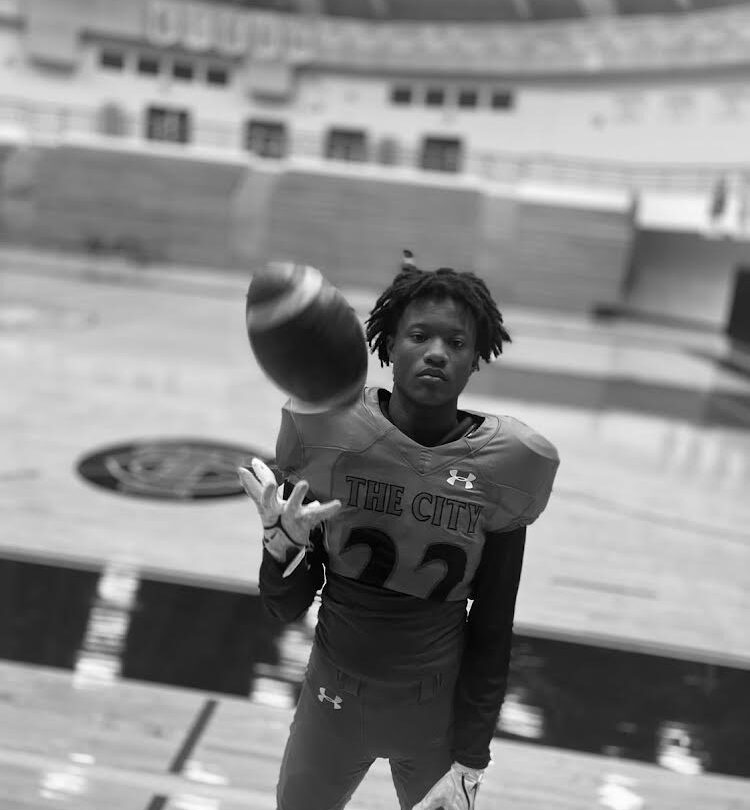
Zaire Byrd has big dreams of going to college and pursuing a career in film and media. The now-Banneker High School senior is gearing up for graduation, recently starting the 2023-2024 school at a new school with a renewed focus to reach his goals.
Byrd’s academic future took a turn, in January of 2023. Byrd and his mother, DeAndrea Byrd, said he was “unjustly expelled” from Tri-Cities High School’s magnet program following an altercation involving a group of students.
The Byrd Family and Sterling Johnson, the director for the Partnership for Southern Equity’s (PSE) Just Opportunity Portfolio, were guests on Tuesday’s edition of “Closer Look.” Johnson said this is part of a greater problem in Georgia and across the nation of Black students being disciplined at a higher and disproportionate rate than their White peers.
Here in Georgia, the Governor’s Office of Student Achievement gathered data on students by race and the discipline rate for the 2022 school year. It found that while Black students make up 37% of the student body in Georgia, they accounted for 57% of the disciplinary action taken in the state’s public schools.
While white students make up 36% of all Georgia students, they accounted for less than 25% of the disciplinary action taken in schools. The numbers follow a smaller but similar pattern for Hispanic, Asian, and Native American students.
DeAndrea Byrd told show host Rose Scott that her son has attention deficit hyperactivity disorder. She further explained why she believes her son was harshly punished and why she believes school leaders did not follow protocol procedures.
During the conversation, the guests also discussed the actions they want school leaders to take.
“Closer Look” received the following statements from Fulton County Schools and Atlanta Public Schools.
FULTON COUNTY SCHOOLS: “Fulton County Schools is unapologetic for providing a safe learning environment for students and staff. We acknowledge and value the perspective of all families; however, when students engage in certain activities that endanger others, we will continue to enforce the Student Code of Conduct while providing students with due process.
The Fulton County School System strongly believes in setting a foundational standard of student behavior and, at the same time, looking at the needs of each child individually when applying our Student Code of Conduct and disciplinary practices.
Our Tiered Student Code of Conduct provides a plethora of student support, such as positive behavior support and discipline management techniques, on-site counseling support at all FCS schools, restorative conferences, student and parent consultation as well as disciplinary ranges that are commensurate with student behavior.
In addition, 100% of Fulton County Schools are State recognized as a Positive Behavior Intervention Support (PBIS) school, a result of our relentless pursuit of positive learning cultures and climates for all students.”
ATLANTA PUBLIC SCHOOLS: “APS supports the success and well-being of ALL students, and we continue to approach the way we implement our student code of conduct with empathy, understanding, and a commitment to addressing the root causes and systemic factors that contribute to the data. Implementing various programs, trainings, and student support services (e. g. PBIS, SEL, Restorative Practices, THRIVE, etc.) throughout 100% of our schools has allowed us to foster cultural competence amongst school staff to create more inclusive and supportive educational environments for all students.
These strategies have been effective alternatives to traditional punitive disciplinary actions, which have contributed to a decrease in the number of suspensions. We are committed to continued progress in this space.
Collaboration with partnerships such as the At-Promise Centers, Boys and Girls Clubs, Family First, Big Brothers Big Sisters and Chris 180, just to name a few, along with the work that our Family Engagement department is doing to bridge the communication between schools and the community are making a difference.
Ultimately, our current work and structural adjustments are all geared toward addressing the whole child. We have behavioral specialists, school social workers in every school, school counselors, etc., to provide ongoing support to assist our students with making better choices and educating them on the importance of adhering to the student code of conduct to keep our schools safe!”
